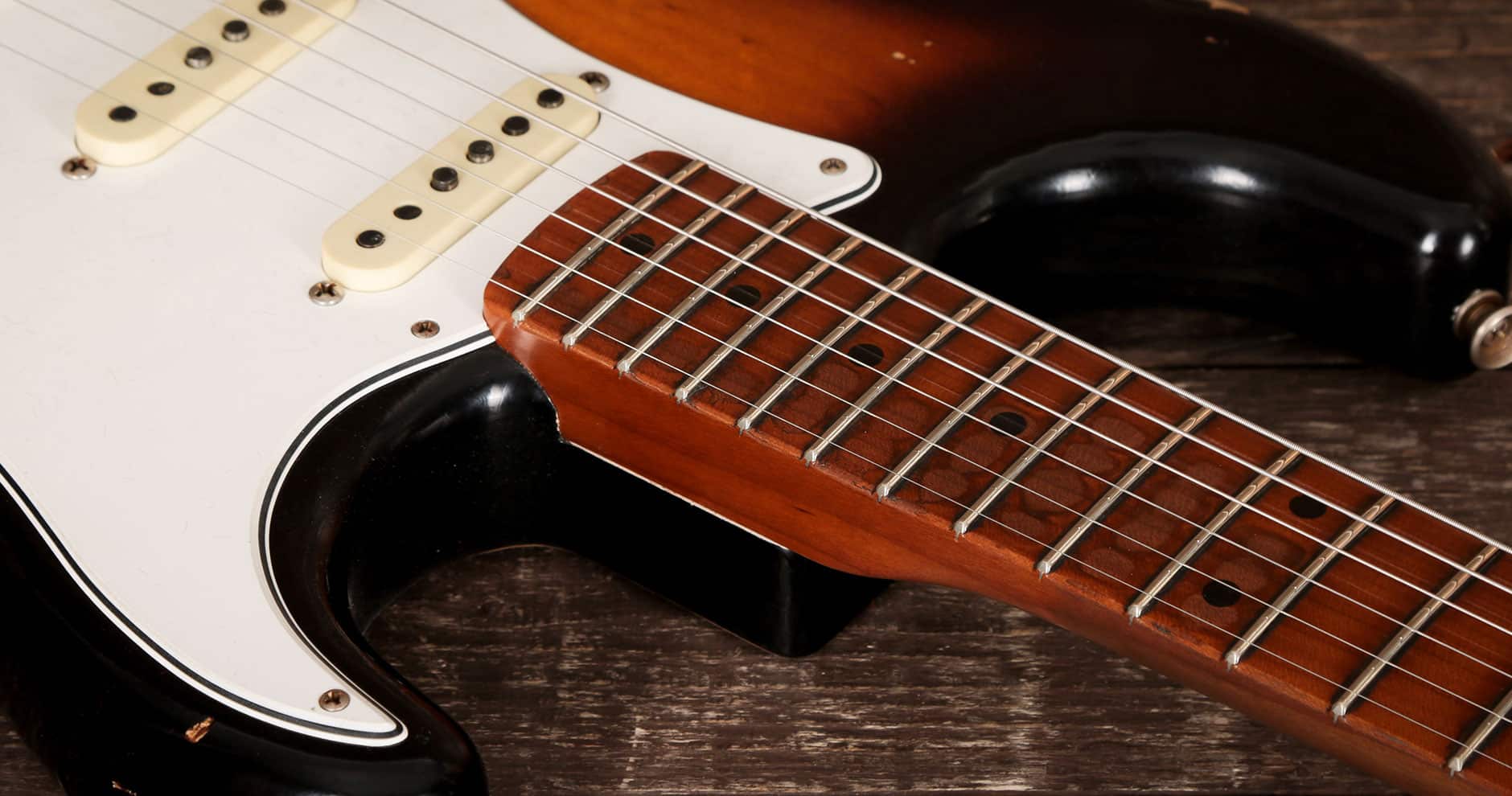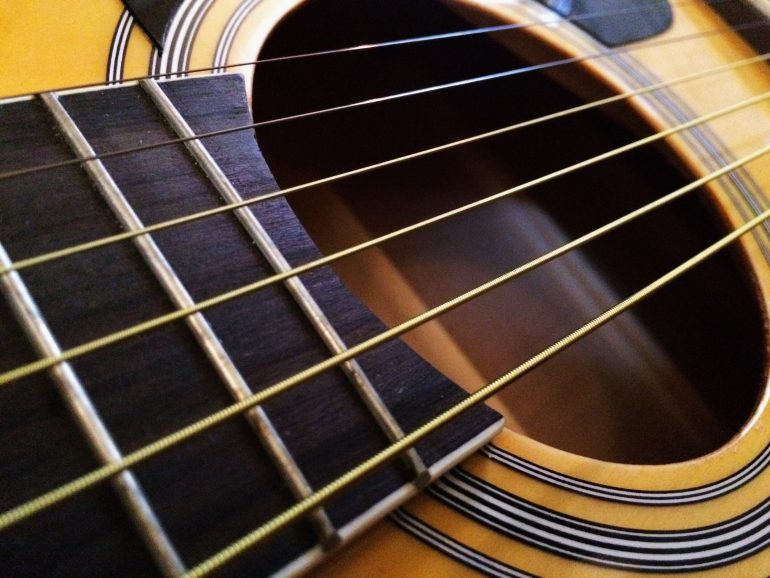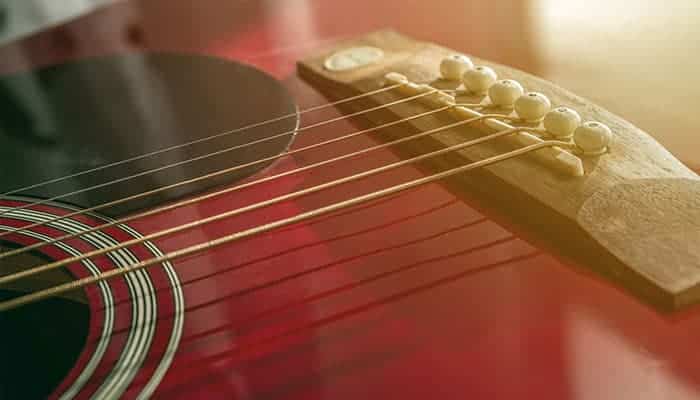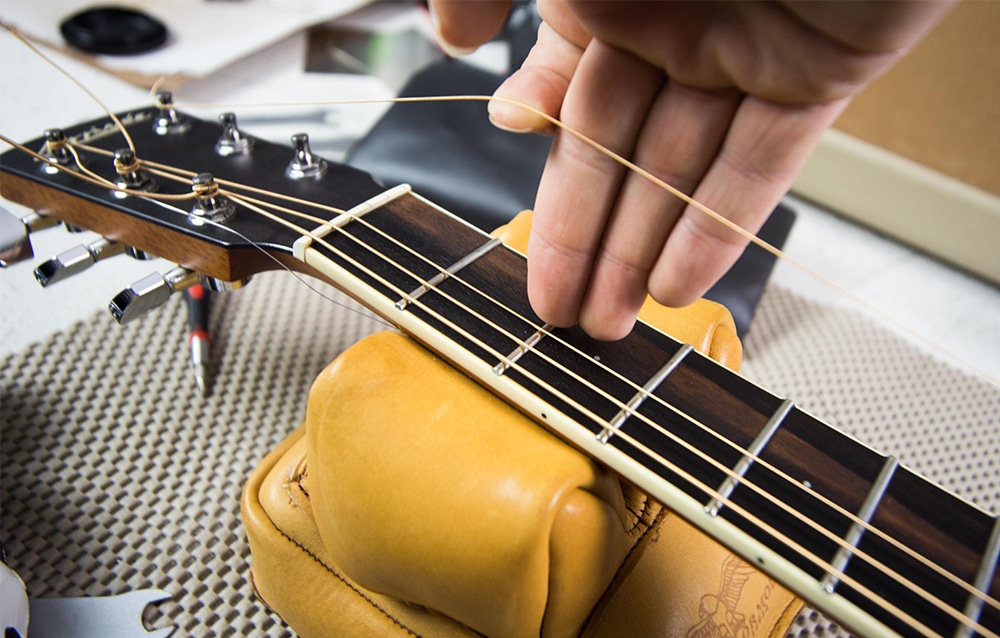Contents
From novices to experts, every guitarist on the planet knows that without a good set of strings, it’s impossible to deliver an optimal performance. These kinds of days, music enthusiasts have a wide range of options regarding guitar strings. Using their constructions, you could split strings for guitar into two styles: coated and uncoated. As each type of string possesses distinct advantages and disadvantages in use, different people tend to have different views regarding Coated vs. uncoated guitar strings.
Unable to tell just which type of guitar string is good for your personal playstyle? If that happens to be the case then you have come to the right place. Down below, you shall be introduced to virtually everything that guitar players must keep in mind about the subject of coated vs. uncoated guitar strings.
Brief Overviews Of Coated vs. uncoated guitar strings

From the names, you should have a good idea about what make coated strings for guitar differ from uncoated ones. That is right, while coated strings have coatings on them, their uncoated counterparts don’t.
In the old days, despite the fact that uncoated guitar strings work well in most cases, they often suffered from sweats, oils and air oxidation. As a result, guitarists might have to search for replacement strings after every few gig. Eventually, a lot of people felt compelled to look for long-lasting strings as changing the strings is a pain. After noticing the wish of the guitar players, manufacturers started creating coated strings which prove to be a huge success. Compared to uncoated guitar strings, coated ones tend to have a superior resistance against corrosion.
In-Depth Reviews Of Characteristics Of Coated vs. uncoated guitar strings

-
Acquisition Cost
Like every purchase, cost is something that we have to consider while shopping for strings. On the market, coated strings would be several times more expensive than their uncoated counterparts. That is why many budget-minded music enthusiasts speak highly of uncoated products in coated vs. uncoated guitar strings comparisons. All in all, it’s wise for you to choose strings that match your wallet. Coated strings seem nice indeed but you don’t want to waste all of your money just to get them.
-
Overall Lifespan
Generally speaking, the presence of coatings on coated strings ensures that these strings shall last much longer than uncoated options. Actually, in the hand of guitarists that play regularly, the performance of uncoated strings for guitar degrade within one month. In the case of coated guitar strings, it could up to five times as long for the deterioration to show. As a result, if longevity happens to be your primary concern here then you should opt to buy coated products.
-
Feel
Needless to say, most coated strings for guitar on the market feel quite different to the touch than uncoated ones. Some strings feel just like nylon while others feel slippery. Also, despite the fact that coated strings respond to manipulation like their uncoated counterparts, the use of coating limit vibration. After a couple of playing sessions, a lot of guitarists would get used to the feel but several might fail to cope with the strings. Hence, it’s up to the preferences of guitar players.
Conclusions about coated vs. uncoated guitar strings: It’s All About Taste As Well As Style

The reason why arguments about coated vs. uncoated guitar strings never end is that guitarist around the globe have a variety of tastes and styles.
To get the right strings, it’s essential that you take your preferences into account. In the case you hate changing your strings to often and have money to spare, go after coated guitar strings. On the other hand, if you prefer to have familiar feels and vibrant tones while playing, stick to uncoated choices. That being said, It’s worth noting that certain guitarist enjoys playing with both types of strings and switch between them depending on the occasions.
Keeping Uncoated Guitar Strings In Top Shape: Tips And Tricks

By implementing a few precautions, it’s possible for musical enthusiasts to extend the lifespan uncoated strings which save money and decrease the changing frequency. Consider the following hints if you want to get the most out of your strings.
- Always Wash And Dry Hands: Before playing your guitar, it’s strongly recommended that you wash and dry your hands. That alone should be enough to keep dirt, grime and oil from the guitar strings.
- Wipe Clean The Guitar Strings: After a gig, proceed to wipe clean the strings using a soft piece of cloth. Sweat that builds up on the strings would be removed by the cloth without fail.
- Store The Guitar In Case: Outside of playing sessions and practices, it’s widely advised that you keep your guitar in its case for safekeeping. Doing that shall minimize the effect of air oxidation on the strings in most cases.

Hi music fan! I am Jeff. Hope that you enjoy some stuff I shared here in my personal blog.
About myself, Currently I am in charging as Artist Manager/Music Supervisor at 72 Music Management. I did managed album to Grammy Award in 2017 with 7 Nominations from 2014-2020 and had the opportunities to work with : A.J. Croce, Blind Boys of Alabama, Bobby Rush, Dom Flemons, Dustbowl Revival, Sarah Grace
Governor of the Memphis Chapter of The Recording Academy is one of a award that I am lucky to achieved.
